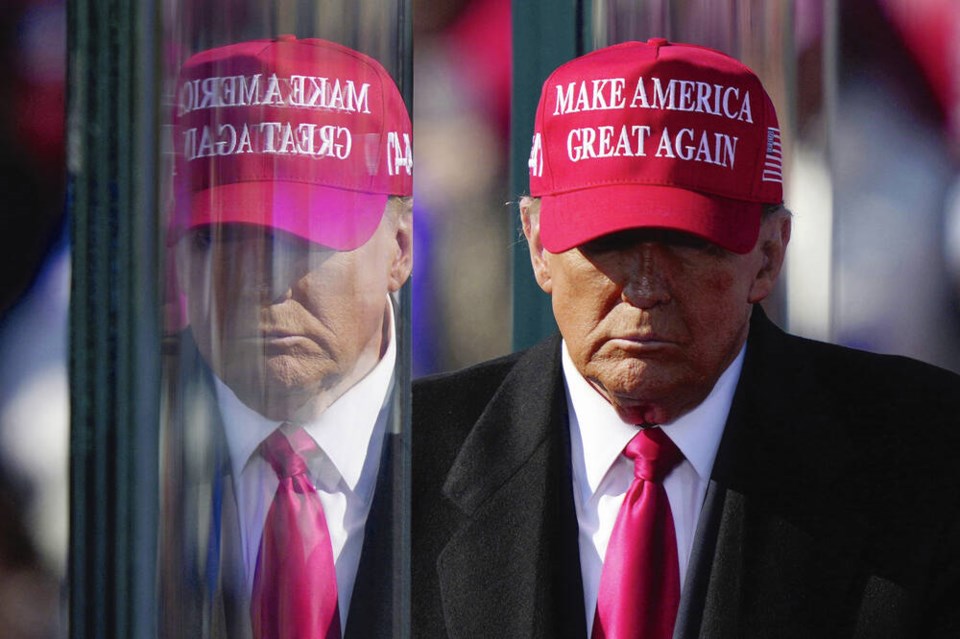The U.S. election result will come as no surprise to those who have followed the key themes of history.
When the real or imagined gap between the “haves” and the “have nots” becomes too great, there will always be those in pursuit of power who are ready to point fingers at who and what the “have nots” can blame for their situation.
In our modern information-flooded world, that gap can also include “thinkers” versus “non-thinkers,” but we’ll get to that distinction in a moment.
There have always been those who see these gaps between groups in the population as an opportunity to pursue their own political or philosophical objectives via promises to “fix” the situation by whatever means necessary.
Amid the ravages after the First World War, Germany’s economic slump was aggravated by the severe banking crisis of 1931. A simple recession became a great depression partly started by the collapse of Danatbank, one of Germany’s four big banks.
Danatbank was led by prominent German-Jewish banker Jakob Goldschmidt. Adolf Hitler and the Nazi party saw their opportunity to identify and blame one group in the population as being responsible for the gap between rich and poor and as proof of their central long-standing claim that “the Jews are Germany’s misfortune.”
The purge and Holocaust followed.
Fast forward to this year, which was, like 2016 and 2020, fertile ground for a demagogue and manipulator like Donald Trump who, having never been fettered by logic, fact or any thought of substance, was not challenged by even the most basic critical thought or media analysis.
Like the demagogues before him, Trump has a natural feel for what injustices, imagined or otherwise, anger whole groups of people who have come to believe they have been somehow cheated of the life they deserved.
An “I love the poorly educated” Trump distrusts thinkers and holds them in disdain.
Given a lack of critical analysis on the part of public media, Trump, ever the entertainer, was able to flood the front pages and talk shows with election lies and conspiracy theories supporting the notion that it was not Wall Street that was at the root of their troubles but the immigrant population, and any number of scapegoat minority groups.
The TV media continued to cover Trump’s outrageous entertainment events as serious politics.
Lorrie Moore, a professor of English at Vanderbilt University, wrote in the New Yorker the day after the election that voters preferred “a fourth-rate entertainer, a wannabe stand-up comedian who ... floats language out into the air, hoping it will cohere.”
And Trump, whose politics depend on the growing gap, real or imagined, between the “haves” and the “have nots,” between the “thinkers” and the “non-thinkers,” knows instinctively that showbiz and diversion, the kind of “bread and circuses” described by second-century Roman poet Juvenal, would fill the gap created by a lack of any thoughtful analysis of rising food and fuel prices, the availability of affordable housing, climate change and trade policies.
So where does all this leave us here in Canada, as we watch the U.S. election results in horror?
What should those of us who have spent our careers in public classrooms and school districts consider teaching about the lessons of the U.S. election result?
Should we take note that teaching kids to think critically is the core of education?
In 2024, should a preferred approach to education be one that has critical thinking at its curricular core — a skill not measured by standardized testing but that is tested most effectively at voting time.
The following are cited as components of critical thinking by the Centre for Teaching and Learning at Western University in London Ontario:
• understanding the logical connections between ideas
• identifying, constructing and evaluating arguments
• detecting inconsistencies and common mistakes in reasoning
• solving problems systematically
• identifying the relevance and importance of ideas
• reflecting on the justification of one’s own beliefs and values
Jean Piaget, the Swiss psychologist best known for his theories of cognitive development, said: “The principal goal of education in the schools should be creating men and women who are capable of doing new things, not simply repeating what other generations have done; men and women who are creative, inventive, and discoverers, who can be critical and verify, and not accept, everything they are offered.”
Geoff Johnson is a former superintendent of schools.



